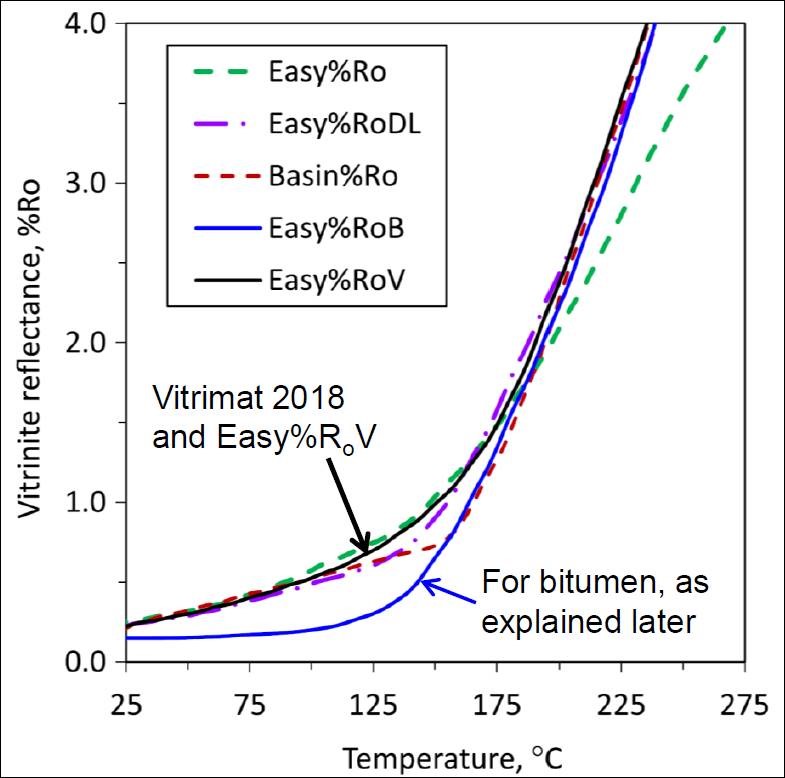Webinar: Evolution of Vitrinite Reflectance Models

The petroleum systems network group invites you to a webinar featuring Professor Alan Burnham from Iowa State University . The inventor of the first good vitrinite-reflectance kinetics scheme, on the invention of the first vitrinite-reflection kinetics model (Sweeney & Burnham, 1990) and new developments in vitrinite-models.
| Date | Time | Duration | Register by | Location |
| 02.12.21 | 17-18 | 1 Hour | 02.12.21 | Teams |
Summary
Vitrinite reflectance is a standard method for measuring the thermal maturity of sedimentary rocks and kinetic models of vitrinite reflectance commonly used to constrain paleothermal histories in basin and petroleum system modeling. EASY%Ro is a one such kinetic model. EASY%Ro is based on the concept that reflectance is related to the chemical composition of vitrinite phytoclasts.
It was derived from an earlier model, Vitrimat, which modeled the compositional evolution of vitrinite based on both laboratory experiments and natural maturation trends. EASY%Ro uses distributions of activation energies that spread the maturation reactions over a wide range of thermal exposure. A variety of alternatives to EASY %Ro has been proposed, like Ritter et al. (1996) and Nielsen et al. (2015), and most recently Burnham, Peters & Schenk 2017 and Burnham, 2019, including unpublished versions that use fewer second-order reactions to speed computation and extend the predictions to higher reflectance.
Some workers have proposed models based on single first-order reactions and power-law reaction models. Others have proposed models that take into account suppression of reflectance by co-generated oil and overpressure within petroleum source rocks. The objectives of this presentation are to review these models and supporting observations in order to assess the reliability of EASY%Ro and how modifications might improve reliability of the method.
Bio
Dr. Alan Burnham has a BS from Iowa State University Chemistry and PhD from the University of Illinois in Physical Chemistry. He worked at Lawrence Livermore National Laboratory for 31 years on oil shale retorting, petroleum geochemistry, laser fusion material science, and energetic materials.
He was CTO for American Shale Oil for 7 years prior to becoming an Consulting/Adjunct Professor at Stanford. During this time he was also an independent consultant on various energy projects. He is currently an affiliate in the Basin and Petroleum Systems Modeling (BPSM) Group of the Stanford University and a consultant for Lawrence Livermore National Laboratory
How a webinar works
You register as usual through the registration button above. Once you are registered you will get an invitation via email to join this webinar.
FORCE uses Teams Video for this webinar, and has proven to work successfully.
We recomment that everyone joining turn off their camera and microphone when joining.
If you have any questions you can use the chat or wait until the end of the talk.
FORCE seminars have previously been fully booked with waiting lists so you are encouraged to sign up as soon as you know you will attend.
Once you have registered, you will receive an outlook invitation with the Teams link. You will receive the link a few days prior to the webinar.
You cannot forward the link to people who is not registered.
Participation fees:
FORCE members: Free
Non-members: NOK 350,-
University/student: Free
Important information:
You can register as a FORCE member and pay "FORCE member" price if you are an employee of a member company.
All FORCE member companies are listed here.
Payment is made online by credit card. Please note that no refunds will be given after you have signed up.
If you for any reason can not attend the workshop, you are welcome to send a representative, just inform Linn Smerud as soon as there are changes.
If you have any questions please contact Linn Smerud at the FORCE secretariat.

Updated: 12/6/2021
